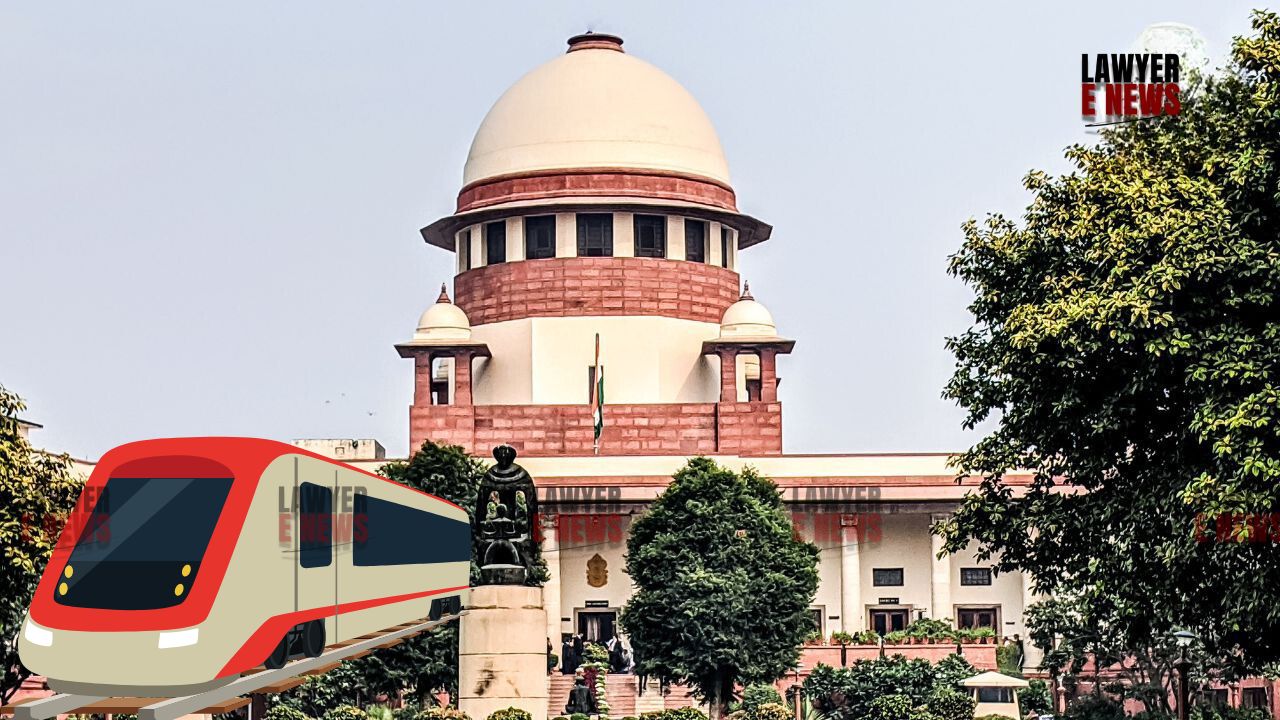-
by sayum
14 February 2026 2:22 PM



In a significant ruling, the Supreme Court of India has overturned the decisions of the Railway Claims Tribunal and the Gauhati High Court, granting ₹8 lakhs in compensation to the family of a deceased passenger who died after falling from a moving train. The judgment, delivered by a bench comprising Chief Justice D.Y. Chandrachud, Justice J.B. Pardiwala, and Justice Manoj Misra, clarified the burden of proof in cases where a passenger’s body is found on railway premises without a ticket.
The case concerned the tragic death of Swapan Kumar Saha, who allegedly fell from the Kanchanjanga Express on September 5, 2003. His body was recovered three days later near Dolma Gate, leading his sister, Doli Rani Saha, to file a compensation claim under Section 16 of the Railway Claims Tribunal Act, 1987. The Tribunal, however, dismissed the claim, citing the absence of a ticket and insufficient evidence. The Gauhati High Court upheld this decision, leading to an appeal to the Supreme Court.
The Supreme Court identified several errors in the judgments of the Railway Claims Tribunal and the Gauhati High Court. The primary issue was whether the deceased was a bona fide passenger. Citing its earlier ruling in Union of India v. Rina Devi (2019), the Court reiterated that the absence of a ticket does not automatically negate the possibility of a claim under the Railways Act, 1989. The Court noted that once the claimant files an affidavit stating the relevant facts, the burden shifts to the Railways to disprove the claim.
The Supreme Court also addressed the High Court's rejection of the Investigating Officer's (IO) report, which supported the claim that the deceased had died due to a fall from the train. The Court observed that the IO's findings, including the post-mortem report indicating death due to head injuries caused by blunt force, were sufficient to establish that the deceased was a bona fide passenger.
The Court noted, "A margin of error of about half a day in cases where compensation is at issue is not disproportionate, where the evidence is otherwise corroborated by the material on record." This statement was crucial in countering the High Court’s reliance on minor discrepancies in the time of death estimation.
The Supreme Court emphasized that the legal position regarding compensation in railway accidents had been clarified in the Rina Devi case, where it was held that the burden of proof initially lies with the claimant, but once the affidavit is filed, it shifts to the Railways. The Court found that the Railways failed to discharge this burden, thereby entitling the appellant to compensation.
In line with the decision in Rina Devi, the Supreme Court held that the appellant was entitled to ₹8 lakhs, the amount prescribed under the current Railway Accidents and Untoward Incidents (Compensation) Rules, 1990, as amended. The Court also directed that the compensation be paid by September 30, 2024, failing which an interest rate of 6% per annum would apply from the date of the order until payment.
This judgment reinforces the legal principles surrounding compensation claims for railway accidents, particularly in cases where a ticket is not found with the deceased. By overturning the lower courts' decisions, the Supreme Court has provided clarity on the burden of proof and the importance of considering all evidence, even when it involves approximations. This ruling is expected to influence future cases involving similar claims under the Railways Act.
Date of Decision: August 9, 2024
Doli Rani Saha v. Union of India
